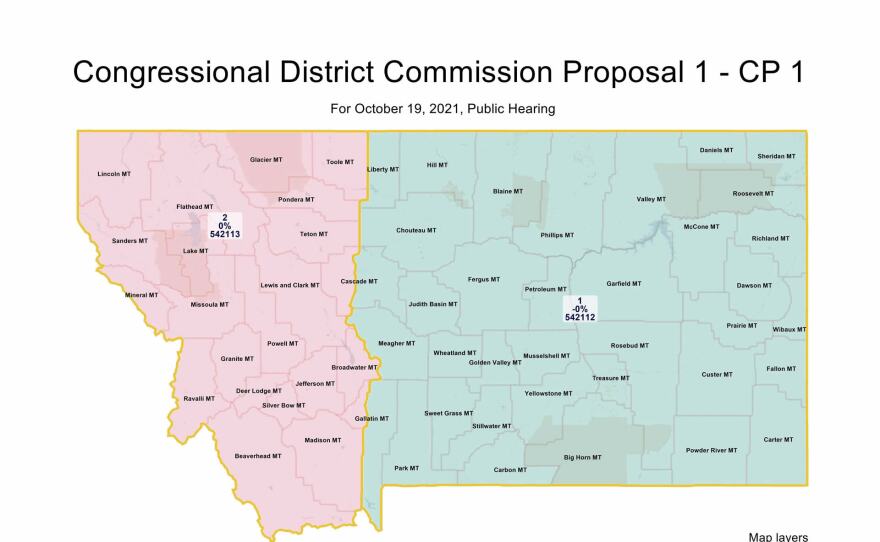HELENA, Mont. (AP) — Montana’s bipartisan redistricting commission has narrowed down the possibilities for congressional maps that would create two U.S. House seats in the state for the first time in 30 years.
Commissioners selected nine maps on Tuesday to move forward as part of the once-a-decade process of redrawing the state’s congressional districts, which must be complete before the end of the year.
The commission is made up of two Republican appointees, two Democratic appointees and a nonpartisan chair.
Democrats across the state are hopeful that the new congressional seat will allow them to win representation in the U.S. House despite the fact that all statewide races were won overwhelmingly by Republicans last year.
To do so, many Democrats believe that they must keep Missoula — a city in the far west of the state — in the same district as Bozeman — a city to the south-east. Aside from sharing a Democratic electorate, the cities share other commonalities, including large university campuses and looming affordable housing crises.
Republicans, on the other hand, favor splitting the population evenly to an eastern and western district, which would likely put Bozeman in the eastern district and Missoula in the western district.
The Republican-nominated commissioners put forward four maps, all variations on splitting the state into east and west, as was done last time the state had two Congressional districts.
The five maps put forward by Democrat-nominated commissioners were more varied, but all had in common that they kept the cities of Missoula and Bozeman in a single district.
Montana’s seven Native American reservations, which are spread across the state, would be split between the two districts in all proposals.
All nine maps advanced to public comment and further discussion despite opposition by commissioners of each party to the opposing party’s proposals. Chair Maylinn Smith, who was appointed by the state Supreme Court, voted to advance all proposals.
Republican-appointed Commissioner Jeff Essmann said the five maps proposed by Democratic appointees fail to meet a requirement laid out in the state Constitutions that the districts be as compact as possible, and would therefore be subject to a court challenge.
Democratic-appointed Commissioner Joe Lamson countered that the maps proposed by Republicans were not competitive and unduly favor the Republican Party.
The proposals were adapted from around 70 map variations received from over 200 proposals from the public.
The commission will meet again to discuss the nine district proposals later this month.
___
Iris Samuels is a corps member for the Associated Press/Report for America Statehouse News Initiative. Report for America is a nonprofit national service program that places journalists in local newsrooms to report on under-covered issues.











